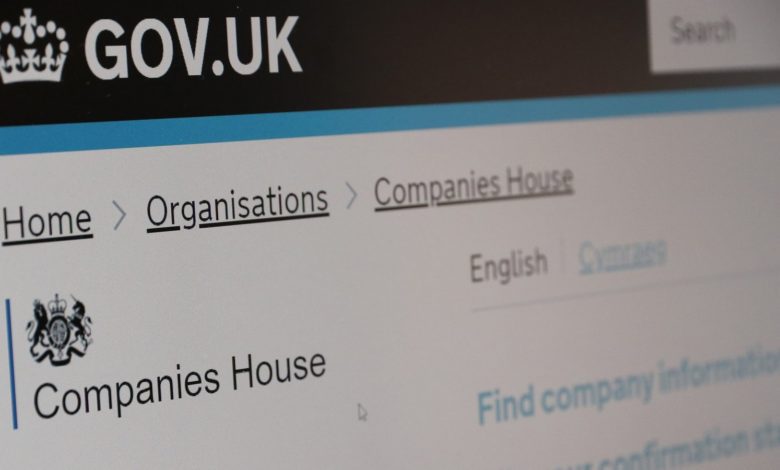Important Facts About First Gazette Notice for Compulsory Strike Off
Important Facts About First Gazette Notice for Compulsory Strike Off
Blog Article
A Comprehensive Overview to the Compulsory Strike Off Treatment in Corporate Governance
The mandatory strike off procedure, an essential element in corporate governance, offers as a mechanism to enforce compliance and preserve the stability of the company setting. As organizations advance and circumstances adjustment, the need to strike off a business might arise for different reasons.
Factors for Compulsory Strike Off
What circumstances bring about the necessity of a required strike off in company governance? There are a number of key reasons that may motivate the initiation of an obligatory strike off treatment for a firm. One common circumstance is when a business stops working to abide by its statutory responsibilities, such as submitting financial statements or annual returns to the appropriate authorities. Non-compliance with regulatory needs can elevate problems regarding the business's operations and monetary health and wellness, resulting in the decision to strike off the business from the register.
Furthermore, companies that have discontinued trading or are no more lugging out any kind of business tasks may additionally face required strike off. This could be due to bankruptcy, mergers, or just a choice to end up the business. In such situations, keeping the firm on the register would offer no objective and might potentially produce confusion among stakeholders.
Eventually, the need of a mandatory strike off in corporate governance emerges when a company is no more running based on the law or has actually ended up being inoperative, necessitating its elimination from the official documents.
Legal Implications and Threats
Offered the situations that trigger a mandatory strike off in company governance, it is vital to understand the legal ramifications and threats associated with such activities. When a business is struck off the official register, it stops to exist as a legal entity. This can have severe effects for financial institutions, shareholders, and directors. Supervisors might face personal responsibility for firm financial obligations sustained after the dissolution, revealing their possessions to possible seizure. Shareholders lose their investment in the business, and lenders might find it challenging to recoup debts owed to them.
Additionally, there are legal repercussions for people associated with the administration of a firm that has actually been forcibly struck off. They may be disqualified from acting as directors in the future, face penalties, or perhaps imprisonment if transgression or deceptive activities are discovered. In addition, the reputational damages from an obligatory strike off can have enduring impacts on individuals and their capability to take part in future service ventures. Comprehending these legal implications and dangers is critical for all stakeholders entailed in the corporate governance process to guarantee and browse potential pitfalls conformity with the law.
Actions in the Strike Off Process
Launching the compulsory strike off process in business governance includes a series of recommended steps described by regulative authorities. The primary step generally calls for the firm to send a formal application or notification to the relevant government company or registrar signaling its intent to be struck off the main register. Consequently, the company is typically needed to work out any type of exceptional liabilities, debts, or tax obligations to ensure compliance with regulatory needs.
Once the first documentation is sent and financial obligations are fulfilled, the regulatory body will certainly release a notification in the main gazette or a comparable publication to inform stakeholders regarding the impending strike off. This notice acts as a last possibility for any type of interested events to elevate objections or existing legitimate reasons that the company ought to not be liquified.
Complying with the magazine of the notification, the regulatory authority will certainly wage the strike off process if no substantial arguments or challenges develop. The business will then be officially dissolved, and its name will certainly be gotten rid of from the register, successfully noting the conclusion of the compulsory strike off treatment in company governance.
Records Needed for Strike Off
In conformity with regulatory guidelines, particular documents has to be given to assist in the strike off process in business governance. Additionally, monetary declarations, such as the firm's most recent equilibrium sheet, have to be included to guarantee that all economic commitments have been worked out prior to launching the strike off procedure. It is necessary to make sure that all the requisite documents is diligently prepared and sent in conformity with the suggested standards to quicken the strike off process effectively.
Post-Strike Off Responsibilities and Factors To Consider

One more essential post-strike off factor to consider is the potential for the business to be brought back to the register. If there is a need to restore the firm after strike off, the process for repair should be thoroughly followed to ensure compliance with lawful requirements. Failure to resolve post-strike off commitments can lead to possible lawful effects for supervisors and investors. It is essential to vigilantly take care of these responsibilities to preserve great business administration methods.
Conclusion

There are several essential reasons that might prompt the initiation of a required strike off treatment for a company. Non-compliance with regulatory requirements can elevate issues concerning the business's operations and financial health and wellness, leading to the decision to strike off the firm from the register.
In addition, business that have stopped trading or are no longer lugging out any kind of business tasks may additionally face required strike off. If there is a need to revitalize the business after strike off, the process for repair need to be very carefully followed to make sure conformity with legal needs.In verdict, the required strike off treatment in company governance offers as a needed system to eliminate defunct companies from the register.
Report this page